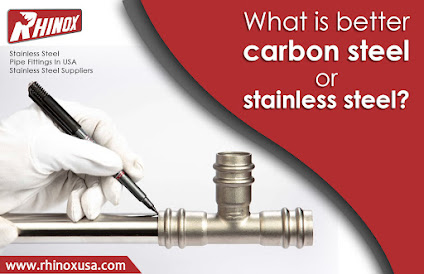The welding process for stainless steel pipe fittings is dependent on the thickness, finish, and
intended use of the final product. Although stainless steel can be welded in a
variety of ways, welders in the United States tend to use three methods most
often. TIG welding, resistance welding, and MIG welding are the methods used to
weld stainless steel. MIG (Metal Inert Gas) welding, TIG (Tungsten Inert Gas)
welding, and resistance welding are the three types of welding. Find out more
about each in the following paragraphs:
The most commonly used
stainless steel welding process, tungsten inert gas welding offers high
quality, versatility, and longevity. This welding process produces very little
heat, making it ideal for thin metals. As needed, argon may be mixed with other
gases, including helium, hydrogen, and nitrogen, depending on the specific
project. When the interior and exterior surfaces are welded together, inert
backing gas is used to create protection from corrosion and prevent oxidation.
Resistance welding or
spot welding, as it is sometimes called, is one of the most cost-effective
methods. As a result, there are no limits to the applications of resistance
welding (RW) equipment, so it can be used both for small and large projects. RW
uses an electrical current to heat frayed metal edges and seal them
Together. Due to its
ability to tailor itself to the metal's properties, this type of welding can be
extremely productive on metals with low melting points.
When performed
correctly, metal inert gas welding results in a strong joint between stainless
steel pieces. Solid wire electrodes and argon gas are used in this process.
Despite its popularity, MIG welding requires the welder to use a pulsed current
supply, which can make welds more difficult on stainless steel projects with
difficult-to-reach spots. Weld quality and arc stability can both be improved
using other gases mixtures like helium, oxygen, and carbon dioxide.
There are many different
ways to weld stainless steel depending on what qualities you need. You might
want to consider spot welding if you're looking for a more affordable weld. For
thin materials, TIG or gas tungsten arc welding would probably be the best
choice. Rhinox stainless steel
plumbing fittings offer
customized solutions for all your requirements.



Comments
Post a Comment